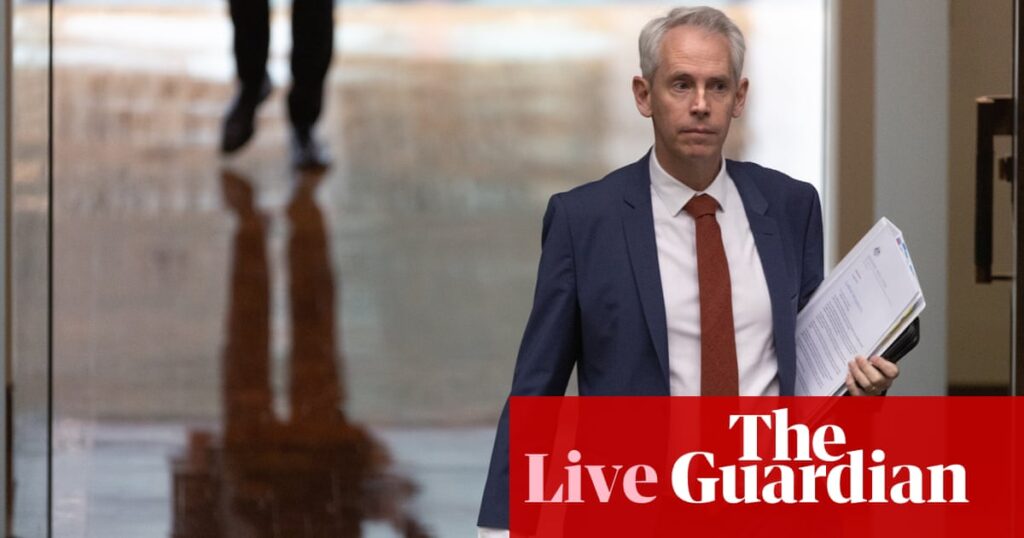
In a significant political development, the Australian government has announced a $30 million investment aimed at boosting trade skills teaching, alongside plans to overhaul the nation’s environmental laws. This dual focus on economic and environmental reform underscores the Albanese government’s commitment to addressing pressing national issues. The announcement comes as the government faces pressure to balance economic growth with sustainable environmental practices.
Speaking on ABC Radio National Breakfast, Environment Minister Murray Watt emphasized that the proposed reforms to the Environment Protection and Biodiversity Conservation (EPBC) Act will align with the recommendations of the Graeme Samuel review. The review, which was submitted nearly five years ago, highlighted the inadequacies of the current laws, which have not seen a comprehensive update in two decades.
Environmental Law Reforms: A Long-Awaited Overhaul
The EPBC reforms are set to be introduced to parliament before Christmas, marking a significant step forward after previous attempts were stalled. According to Watt, the reforms will focus on three key areas: stronger environmental protections, faster and more efficient approval processes, and increased transparency in decision-making.
Watt also announced plans to establish a federal environmental protection agency, although details about its structure are still under discussion. The move represents a concerted effort to address both business and environmental concerns, as the current laws are criticized for failing to meet the needs of either sector.
“If we don’t fix these laws, we won’t get the housing we need, we won’t get the renewables we need, and we certainly will continue to see the environment suffer,” Watt stated.
Political Negotiations and Challenges
Meanwhile, the Greens have expressed their willingness to negotiate with Labor on the environmental reforms. Greens leader Larissa Waters emphasized the need for laws that address the climate crisis and protect nature, while also ensuring housing security for all Australians. The government is expected to seek support from both the Coalition and the Greens to pass the reforms.
However, a sticking point remains the potential inclusion of a climate trigger, which would require the act to consider the climate impact of proposed projects. While the Samuel review did not recommend such a trigger, it did advocate for companies to disclose their emissions and reduction plans.
In a related development, the government has condemned a recent bombing of a Gaza hospital, which resulted in the deaths of 20 people, including five journalists. Watt reiterated that targeting hospitals and civilians is a breach of international law, although he did not specify whether additional sanctions would be imposed on Israeli officials.
Economic and Social Reforms: A Broader Agenda
In parallel with environmental reforms, the Albanese government is also focusing on economic and social issues. The $30 million investment in trade skills teaching aims to increase the number of electrical and construction teachers in the vocational education and training (VET) system. Skills and Training Minister Andrew Giles highlighted the importance of valuing VET equally with higher education to meet the national goal of having four in five Australians hold a TAFE qualification or university degree.
Giles also emphasized the need for lifelong learning, particularly in the context of technological advancements such as generative AI, which are reshaping the demand for skills. This initiative aligns with broader economic reform efforts to support Australians in navigating a rapidly changing job market.
Implications and Future Directions
The government’s multifaceted approach to reform reflects a broader strategy to address both immediate and long-term challenges. As the Albanese administration seeks to implement these changes, it faces the task of balancing diverse stakeholder interests and navigating complex political negotiations.
The outcome of these reforms will have significant implications for Australia’s environmental sustainability, economic growth, and social equity. As the government moves forward, the focus will be on ensuring that these initiatives effectively address the needs of both the environment and the economy, while also promoting social welfare and inclusion.
With the introduction of these reforms to parliament imminent, the coming months will be crucial in determining the trajectory of Australia’s policy landscape. The government’s ability to successfully implement these changes will be a key test of its leadership and vision for the country’s future.






